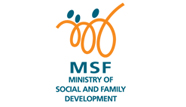SCOPE OF THE CONSULTATION EXERCISE
2. MSF proposes to amend the Women’s Charter in key areas:
(I) Putting the child’s interest first in divorce through a mandatory parenting programme for divorcing parents;
(II)Allowing maintenance for incapacitated men who cannot work;
(III) Enhancing protection for women, girls, residents at places of safety and professionals engaged in protection work; and,
(IV) Voiding a marriage that is a marriage of convenience under section 57C of the Immigration Act.
3. The summary table below lists all the changes and explains the amendments to the Women’s Charter.
.png)
PERIOD OF CONSULTATION
4. The period of consultation is from 19 October 2015 to 8 November 2015.
FEEDBACK CHANNEL
5. We encourage all interested participants to submit your comments via the following channels:
- email to consultations@msf.gov.sg;
- fax to: 6708 7138, or,
- post to:
Family Development Group
Ministry of Social and Family Development
20 Lengkok Bahru, #04-02
Singapore 159053
SUMMARY OF RESPONSES
6. We will publish a summary of the main comments we receive on the REACH website, together with our responses. The identity of respondents will not be disclosed in the summary.
DOCUMENTS TO DOWNLOAD
7. For further reference, please download the relevant documents relating to this public consultation exercise at the bottom of the page.
ANNEX A
Summary Table on Women’s Charter Amendments
Amendments
| Why?
|
I. Mandatory Parenting Programme for divorcing parents before filing for divorce
- Divorcing couples with minor children are to attend a Mandatory Parenting Programme (MPP) before filing for divorce or the counter claim, unless they agree on the divorce and all ancillary matters.
| This is to better protect the interests of the child in divorce.
|
II. Maintenance for incapacitated men who cannot work
-
A husband/ex-husband is allowed to claim for maintenance if he is incapacitated by any physical or mental disability or illness, before or during the time of divorce, from earning a livelihood and is unable to maintain himself.
| Support given to these men is in line with our philosophy of having family as the first line of support, and the mutual help and support expected of spouses.
As with maintenance for a wife, the Court will have to consider all the circumstances of the case, including a wife’s financial circumstances and needs of the children, before ordering maintenance for a disabled husband or ex-husband.
|
III. Enhancing protection of women, girls, residents at places of safety and professionals engaged in protection work
A.
Prohibit the publication of information relating to places of safety to enhance the safety of victims, staff and professionals working with victims;
B.
Enhance the Court’s powers to order persons involved in family violence cases to undergo assessment, therapy, psychiatric treatment, treatment for addiction, or other programmes, including residential treatment (in addition to counselling);
C.
Provide other care options for women and girls in need of protection apart from placing them in places of safety or children’s homes; and
D.
Protect professionals against lawsuits or other legal proceedings in personal capacity for actions taken in good faith when carrying out court orders or statutory responsibilities under Part VII and XI of the Act.
| To better protect women, girls and professionals.
|
| IV. Voiding a marriage if either party has been convicted of an offence under Section 57C of the Immigration Act.
| To void such marriages as they are offences, and uphold the institution of marriage.
|

.png)